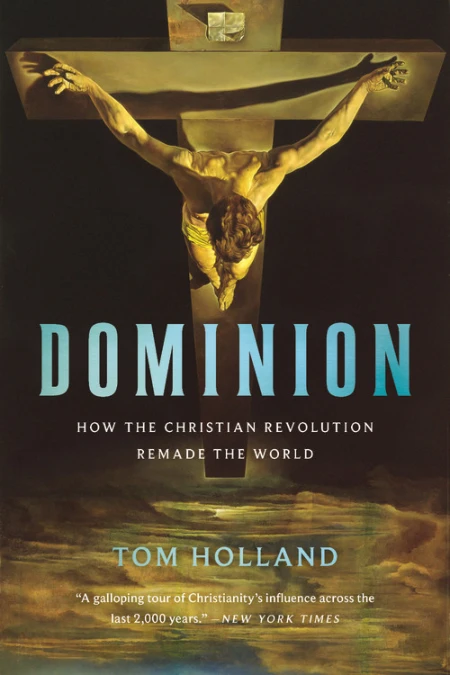In an effort to push myself to read more books in 2023, I’m going to track and review every book I get to this year.
First up is Dominion by Tom Holland. This is the first book I’ve read by Holland, a historian who specializes in writing about the ancient world. But I’ve become obsessed with The Rest of History, the podcast he co-hosts with fellow historian Dominic Sandbrook. This book keeps getting brought up in their conversation, so I broke down and checked it out from the library.
First off, let me just say that Holland embarked on a very ambitious goal: to explore the ways in which Western civilization has been shaped, both consciously and unconsciously, by Christian theology. In particular, Christian ideas about equality, about individual worth and dignity, and about secularism. And I think he largely succeeds, especially because he’s good at anchoring the beginning the narrative by explaining just how absent these ideas were from Europe and North Africa, especially those areas under the rule of Rome. Roman society, notes Holland, was highly hierarchical, completely suffused with religious practice and a cruelty that seems utterly alien to the modern era, 2,000 years after Christianity began.
As Holland makes his way through the centuries, he shows how many of these ideas ended up fundamentally shaping and changing how European civilization operated, and convincingly argues that many ideas that underpin modern liberalism–from individual rights to economic equality, to separation of church and state–all emanate from theological ideas. This isn’t a new idea: Nietzsche argued this in the 19th century, as Holland notes, but Holland gives these ideas a solid historical foundation, showing that ironically, many thinkers claiming they were not Christian or arguing against Christianity were in fact swimming in a sea of Christian ideas and assumptions.
Holland doesn’t shy away from the dark side of Christian history either. Crusades, inquisitions, slavery, the American conquest — they’re all well-covered here. But Holland also makes a persuasive case that our modern judgements and criticisms of these brutal aspects of European history are built on a Christian foundation. That is, the bad acts of those Christians are being judged by Christian standards!
A deep tracing of the influence of ideas and arguments on the course of history is the type of subject that could easily be rendered very dry (and in fact, I was kind of dreading that when I cracked the book open) but Holland avoids this completely. His writing is narrative, using the events of history to illustrate his points in a compelling way, and the anecdotes he chooses do a good job of illustrating his arguments.
Indeed, despite the fact that the book clocks in at nearly 600 pages, it doesn’t feel like it. And in fact there were some aspects of Christian history I wished Holland had delved even more into (The intersection of Christian, Jewish and Muslim ideas in medieval al-Andalus, for one. The influence that Native American ideas had on 17th and 18th century philosophers, for two.) But overall, Holland’s work is eminently readable and compelling. And I keep thinking about it even though I finished it well over a week ago. It sticks with you.
